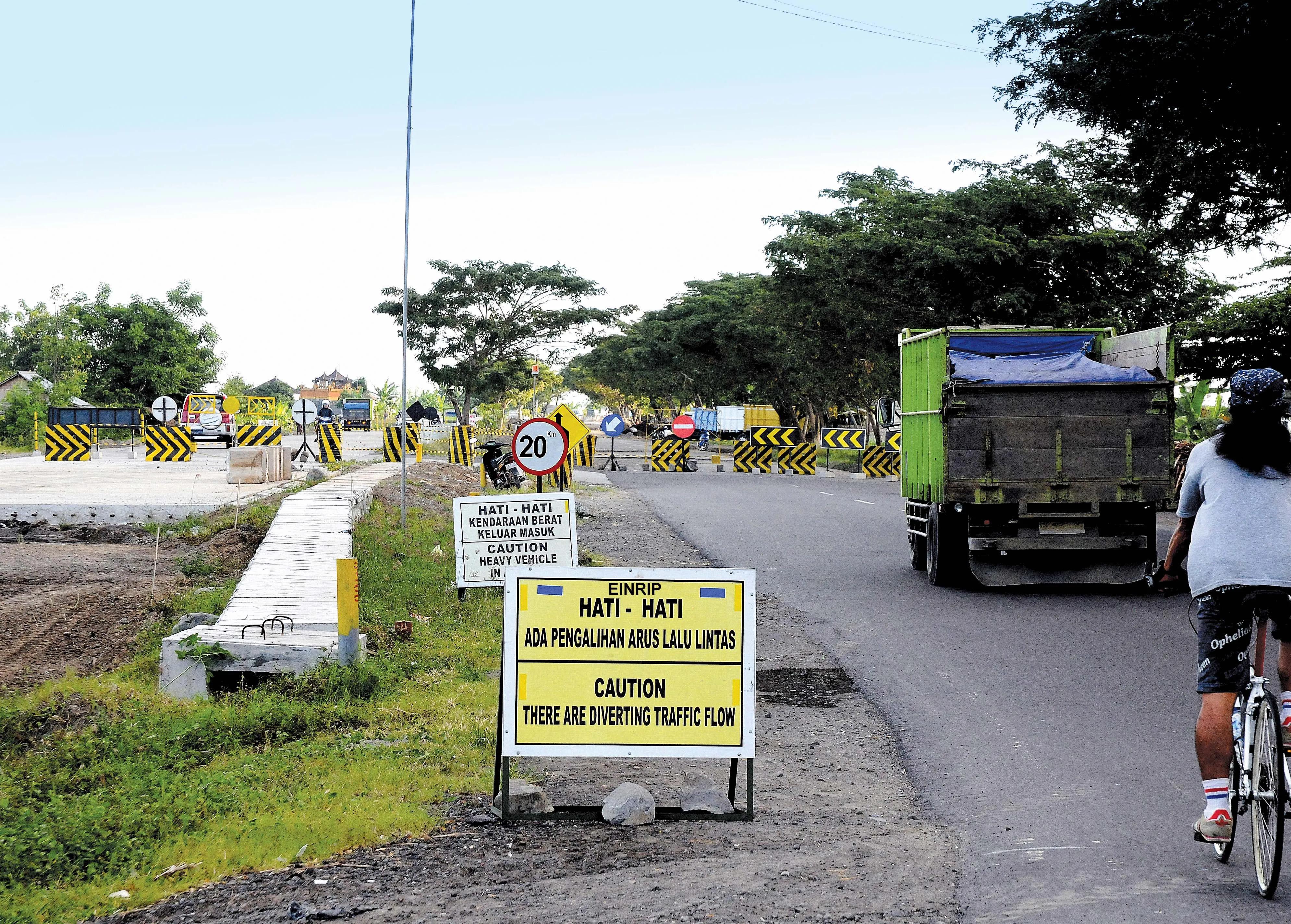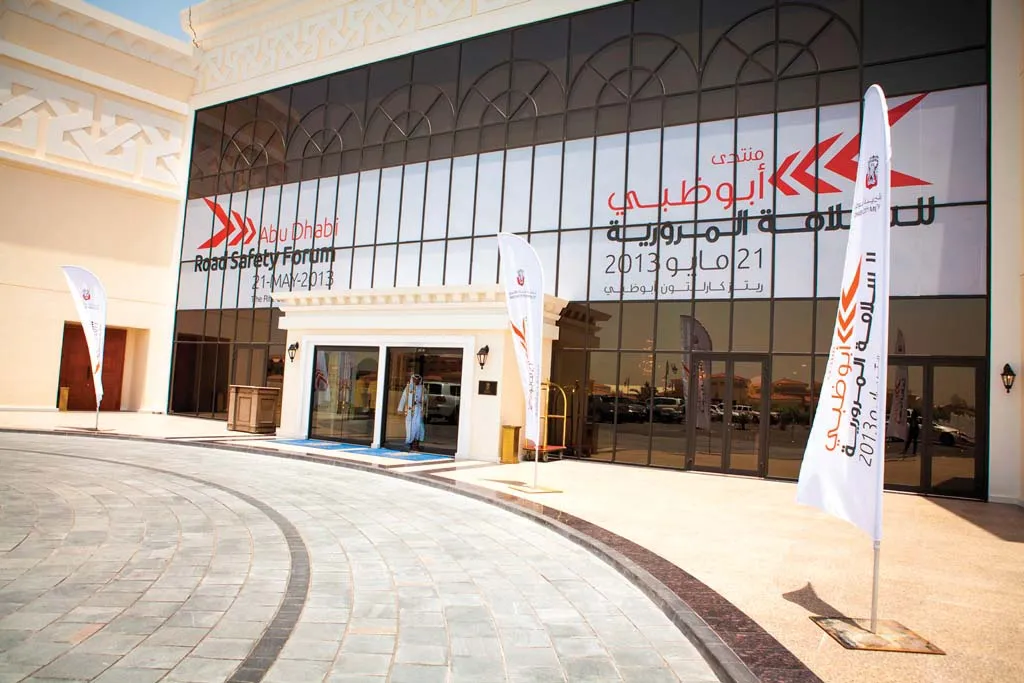Winners of the 2015 Global Road Achievement Awards Announced
This year the IRF honoured 12 projects from around the world, each leading the way in innovation across major road and highway disciplines. The selection was made by an international panel of senior road development specialists.
"Much of the transport sector's accomplishments are unnoticed by the hundreds of millions of people who benefit so greatly from the availability of safe, smart and interconnected road networks," said IRF chairman Abd
August 18, 2015
Read time: 3 mins

Winners of the 2015 Global Road Achievement Awards announced
This year the3918 IRF Washington honoured 12 projects from around the world, each leading the way in innovation across major road and highway disciplines. The selection was made by an international panel of senior road development specialists.
"Much of the transport sector's accomplishments are unnoticed by the hundreds of millions of people who benefit so greatly from the availability of safe, smart and interconnected road networks," said IRF Washington chairman Abdullah A Al-Mogbel. "This is precisely why the IRF's Global Road Achievement Awards provide a rare opportunity to celebrate our industry's successes and highlight how our work supports broader societal goals."
"For the past 15 years, our awards programme has constituted an industry reference for innovators across the globe," said IRF Washington president and CEO C. Patrick Sankey. "Year after year, our sector demonstrates that it is a source of cutting edge solutions that makes a difference in our communities. By embodying our ideal of better roads for a better world, these 12 projects join an elite circle of international laureates."
The winning projects range from the innovative use of construction techniques for one of the world's longest suspension bridges in China, to advanced free-flow tolling in Slovakia and a sophisticated people mover in Saudi Arabia. They also include a major road infrastructure programme that has unlocked social development in eastern Indonesia.
2015 GRAA Winners
ASSET PRESERVATION & MAINTENANCE MANAGEMENT
• Ministry of Public Works (UAE) - Preparation and Operation of Pavement and Asset Management System
CONSTRUCTION METHODOLOGY
• Hunan Road & Bridge Construction Group Corp. - New Girder-Conveying Track Cable Technique for Erection of the Stiffening Girder in Aizhai Bridge
DESIGN
• CECI - National Freeway No. 1 Widening Project from Wugu to Yangmei
ENVIRONMENTAL MITIGATION
• MetaMeta - Optimising Road Development for Groundwater Recharge and Retention in Tigray, Ethiopia
PROGRAM MANAGEMENT
• Australian Department of Foreign Affairs and Trade with Directorate General of Highways, Indonesia - Eastern Indonesia National Road Improvement Project (EINRIP)
PROJECT FINANCE & ECONOMICS
• Parsons - LSIORB East End Crossing
QUALITY MANAGEMENT
• ATTIKES DIADROMES S.A. - Attica Tollway Operations Authority
RESEARCH
• Shell - Shell Bitufresh
SAFETY
• CDM Smith - Advancing Road Safety in Latin America through Implementation of Low-Cost, Short-term Measures
TECHNOLOGY, EQUIPMENT & MANUFACTURING
• Saudi Binladin Group - Princess Noura Bint Abdulrahman University for Women (PNU) Automated People Mover (APM)
TRAFFIC MANAGEMENT AND ITS
• SkyToll - Extension of Electronic Toll Collection System in Slovakia
URBAN PLANNING & MOBILITY
• IL&FS Transportation Networks Limited - Thiruvananthapuram City Roads Improvement Project
Detailed project information available at %$Linker:2 External <?xml version="1.0" encoding="utf-16"?><dictionary /> 0 0 0 oLinkExternal here Visit www.irfnews.org/graa website page false http://www.irfnews.org/graa false false %>.
This year the
"Much of the transport sector's accomplishments are unnoticed by the hundreds of millions of people who benefit so greatly from the availability of safe, smart and interconnected road networks," said IRF Washington chairman Abdullah A Al-Mogbel. "This is precisely why the IRF's Global Road Achievement Awards provide a rare opportunity to celebrate our industry's successes and highlight how our work supports broader societal goals."
"For the past 15 years, our awards programme has constituted an industry reference for innovators across the globe," said IRF Washington president and CEO C. Patrick Sankey. "Year after year, our sector demonstrates that it is a source of cutting edge solutions that makes a difference in our communities. By embodying our ideal of better roads for a better world, these 12 projects join an elite circle of international laureates."
The winning projects range from the innovative use of construction techniques for one of the world's longest suspension bridges in China, to advanced free-flow tolling in Slovakia and a sophisticated people mover in Saudi Arabia. They also include a major road infrastructure programme that has unlocked social development in eastern Indonesia.
2015 GRAA Winners
ASSET PRESERVATION & MAINTENANCE MANAGEMENT
• Ministry of Public Works (UAE) - Preparation and Operation of Pavement and Asset Management System
CONSTRUCTION METHODOLOGY
• Hunan Road & Bridge Construction Group Corp. - New Girder-Conveying Track Cable Technique for Erection of the Stiffening Girder in Aizhai Bridge
DESIGN
• CECI - National Freeway No. 1 Widening Project from Wugu to Yangmei
ENVIRONMENTAL MITIGATION
• MetaMeta - Optimising Road Development for Groundwater Recharge and Retention in Tigray, Ethiopia
PROGRAM MANAGEMENT
• Australian Department of Foreign Affairs and Trade with Directorate General of Highways, Indonesia - Eastern Indonesia National Road Improvement Project (EINRIP)
PROJECT FINANCE & ECONOMICS
• Parsons - LSIORB East End Crossing
QUALITY MANAGEMENT
• ATTIKES DIADROMES S.A. - Attica Tollway Operations Authority
RESEARCH
• Shell - Shell Bitufresh
SAFETY
• CDM Smith - Advancing Road Safety in Latin America through Implementation of Low-Cost, Short-term Measures
TECHNOLOGY, EQUIPMENT & MANUFACTURING
• Saudi Binladin Group - Princess Noura Bint Abdulrahman University for Women (PNU) Automated People Mover (APM)
TRAFFIC MANAGEMENT AND ITS
• SkyToll - Extension of Electronic Toll Collection System in Slovakia
URBAN PLANNING & MOBILITY
• IL&FS Transportation Networks Limited - Thiruvananthapuram City Roads Improvement Project
Detailed project information available at %$Linker:







